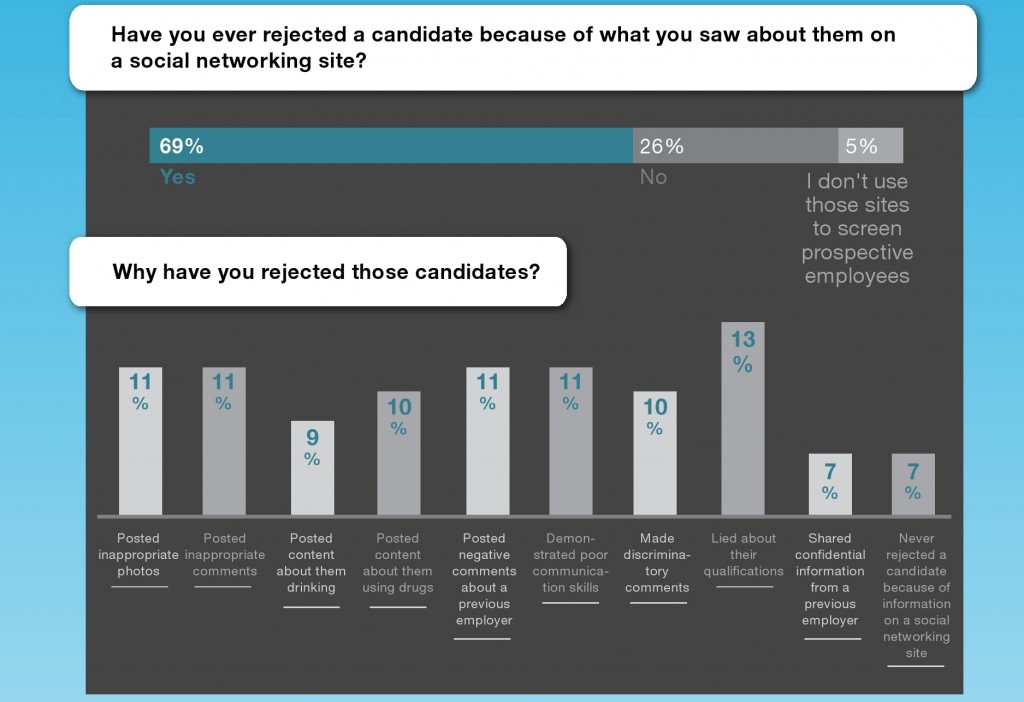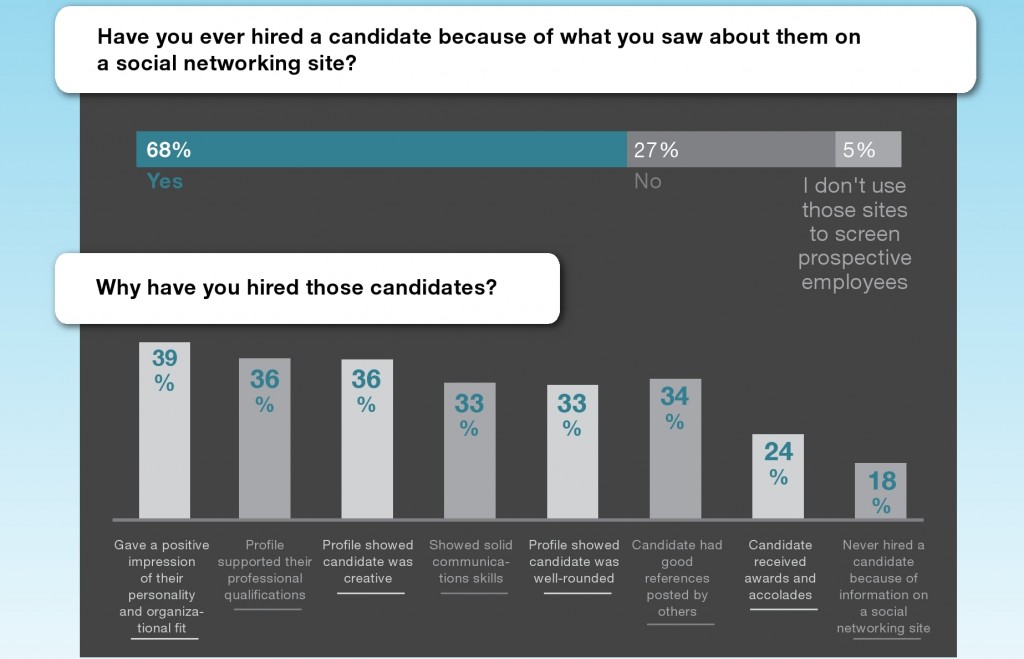June 5, 2014
What your Facebook page says to Potential Employers
June 5, 2014
What your Facebook page says to Potential Employers
We all admit to “facebook stalking” old classmates, former girlfriends/boyfriends, previous co-workers or bosses. But ever wonder if companies are stalking you?
According to Forbes‘s privacy blogger, Kashmir Hill, 70% of recruiters said they’d rejected applications based on info they found online. WHOA. That should be a screaming red flag to those of you who are currently job-hunting and may have “questionable” online content on your social sites.
More and more companies are going online and using Google Search and social sites like Facebook, Twitter, MySpace, YouTube, Tumblr, and Craig’s List to conduct background checks on job applicants.
Our advice to you?
–Search Yourself: In order to know what potential employers are seeing, run a Google search on yourself and see what comes up. If you see anything that may raise a red flag (i.e. compromising photos of you drinking, smoking, engaging in PDA , or wearing revealing attire, personal videos, etc.), remove it immediately from your sites. Chances are, anything that you don’t want your parents or grandparents to see online should be applied to potential employers as well.
–Be Honest & Consistent: You are your own brand, so making inaccurate or dishonest claims about your education, work experience and skills on your sites will just come back to haunt you. Be honest about your qualifications and make sure that all the content that you list on your sites is consistent.
-Adjust your Privacy Settings: Change your privacy settings, so only your friends and family have access to your personal online content. Be selective about who you’re adding, but if you feel like you absolutely need to add your co-workers and clients, then organize them into different lists so that you can control what info they have access to.
DON’T PANIC.
Before you start deleting all your accounts, check out this chart:
Basically, it’s all a matter of making sure your public profile is as positive as you want it to be.
To read more about Hill’s article on Facebook, click here



